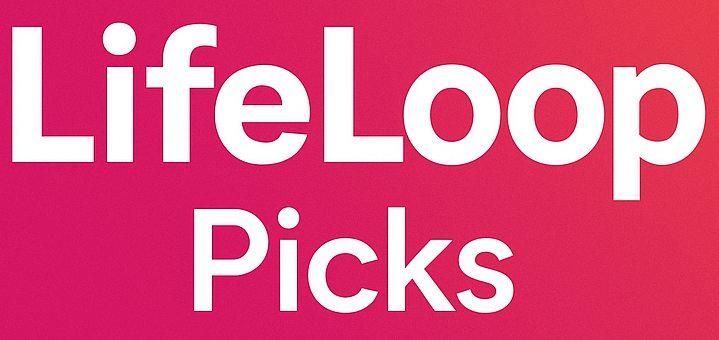In the relentless world of startups and high-stakes business, sleep is often the first thing to be sacrificed. The mantra of “hustle harder” frequently trumps the wisdom of rest. Yet, if you look closely at the world’s most successful and enduring founders — the ones who consistently innovate, make razor-sharp decisions, and sustain their peak performance over decades — you’ll find a surprising truth: they prioritize sleep, often with a meticulous night routine.
This isn’t about laziness; it’s about strategic optimization. They understand that sleep isn’t a luxury; it’s the foundation of high-level cognitive function, emotional resilience, and sustained creativity.
The Scientific Edge: Why Sleep is Your Brain’s Billion-Dollar Asset
While you’re asleep, your brain isn’t “off.” It’s engaged in critical maintenance and optimization processes:
- Memory Consolidation: During deep (NREM) sleep, your brain replays and solidifies the day’s memories, transferring them from short-term to long-term storage. During REM sleep, it processes emotional memories and integrates new information with existing knowledge. This is crucial for learning from experiences and making informed decisions.
- Science Link: The hippocampus actively communicates with the neocortex during slow-wave sleep to facilitate memory transfer.
- Cognitive Restoration: Sleep clears out metabolic byproducts that accumulate in your brain while you’re awake, via the glymphatic system. This “brain wash” keeps neurons functioning optimally, ensuring clarity, focus, and problem-solving abilities for the next day.
- Emotional Regulation: Adequate sleep helps regulate neurotransmitters like serotonin and dopamine, impacting mood, impulse control, and stress resilience. Lack of sleep can lead to increased amygdala activity, making you more reactive and less rational.
- Creativity Boost: REM sleep, in particular, is linked to enhanced creativity and the ability to make novel connections between seemingly unrelated ideas. Many breakthroughs happen after a good night’s rest.
The Night Routine of High-Performing Founders: More Than Just Shutting Your Eyes
These aren’t random acts; they’re deliberate rituals designed to signal to the body and brain that it’s time to wind down, leading to deeper, more restorative sleep.
1. The Digital Sunset (No Screens 1-2 Hours Before Bed)
- What it is: A strict cutoff for phones, tablets, laptops, and even bright TVs.
- Science: Blue light emitted by screens suppresses melatonin production (your sleep hormone), interfering with your natural circadian rhythm. It tricks your brain into thinking it’s still daytime.
- Who uses it: Arianna Huffington (Founder, The Huffington Post & Thrive Global) is a vocal advocate for disconnecting. She charges her phone outside her bedroom and avoids screens for at least an hour before sleep, having learned the hard way about burnout.
- Impact: Allows natural melatonin production to begin, making it easier to fall asleep and improving sleep quality.
2. The Wind-Down Ritual (Consistent Pre-Sleep Activities)
- What it is: A consistent sequence of calming activities like reading a physical book, taking a warm bath or shower, listening to soft music, or light stretching.
- Science: This creates a behavioral anchor for sleep, signaling to your brain that it’s time to transition from activity to rest. It reduces mental arousal and prepares the body for sleep.
- Who uses it: Bill Gates famously reads a physical book for about an hour before bed. This consistent ritual helps him process information and shift his mind away from daily tasks.
- Impact: Accelerates sleep onset, deepens sleep, and provides a crucial mental decompression.
3. The Temperature Drop (Cooling the Environment)
- What it is: Setting the bedroom temperature to a cool 60-67°F (15-19°C).
- Science: Your core body temperature naturally drops as you prepare for sleep. A cooler room facilitates this process, making it easier to fall and stay asleep, and enhancing the quality of deep sleep (which is vital for physical restoration).
- Who uses it: While not always publicly stated, many sleep experts recommend this, and high-performance individuals often optimize their sleep environments based on scientific recommendations. Consider it an adopted best practice from sleep science.
- Impact: Promotes faster sleep onset and more efficient sleep architecture.
4. The “Brain Dump” (Journaling or Task Listing)
- What it is: Jotting down worries, tasks for tomorrow, or ideas in a notebook before bed.
- Science: This externalizes thoughts that might otherwise cause cognitive arousal or rumination, preventing your mind from racing when you try to sleep. It frees up working memory.
- Who uses it: Many successful entrepreneurs, like Tim Ferriss, advocate for journaling to clear their minds and plan their next steps, often as part of their evening routine, though he’s more focused on morning journaling as well. This technique is widely taught in productivity circles for reducing pre-sleep anxiety.
- Impact: Reduces sleep latency (time to fall asleep), minimizes nighttime awakenings due to a racing mind, and fosters a sense of control for the next day.
5. No Late-Night Fuel (Food, Alcohol, Caffeine Cut-off)
- What it is: Avoiding heavy meals, alcohol, and caffeine several hours before bedtime.
- Science: Digestion can raise core body temperature and cause discomfort. Alcohol fragments sleep architecture, disrupting REM sleep. Caffeine blocks adenosine receptors, preventing the natural build-up of sleep-inducing chemicals.
- Who uses it: While not always explicit, the discipline required to maintain peak physical and mental performance, as seen in leaders like Elon Musk (who despite his long hours has spoken about trying to improve his sleep habits) or athletes who become founders, often extends to rigorous dietary habits before bed.
- Impact: Ensures undisturbed sleep, allowing the body to prioritize restorative processes over digestion or detoxification.
The Ultimate Unfair Advantage
For high-performing founders, sleep isn’t downtime; it’s prime performance time for the brain. By meticulously crafting their night routines, they’re not just getting more hours of sleep; they’re getting higher quality sleep, which directly translates into sharper judgment, greater creativity, enhanced resilience, and the sustained energy needed to scale empires.
Ready to upgrade your sleep like a billionaire? Which night routine habit will you implement tonight? Share your choice below!

